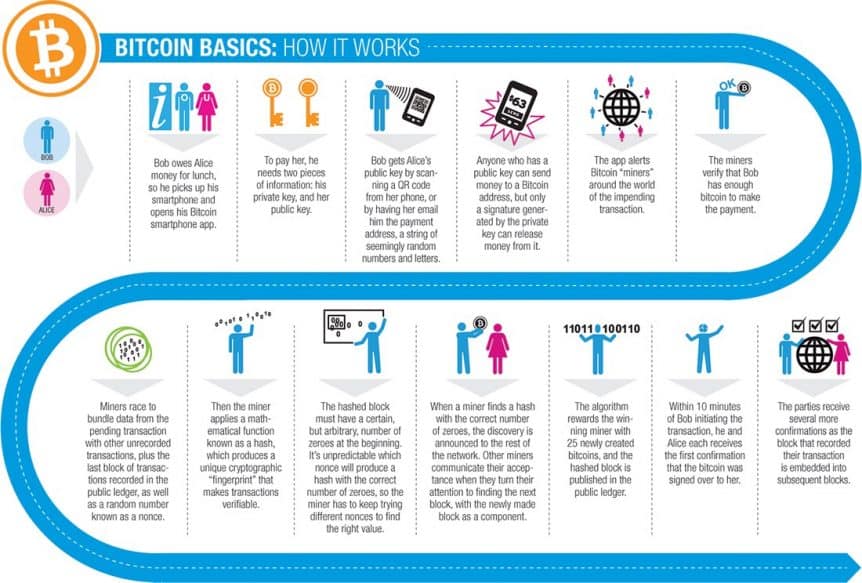Introduction
The modernization of the accounting profession is still in its initial stages. The industry has adopted cloud-based software and applications, but day-to-day operations are still manually intensive and require a variety of checks and balances to ensure the accuracy of financial transactions. For this reason, internal and external audits of a business are cumbersome and expensive.
Blockchain technology acts as a distributed ledger on which digital transactions between two parties are stored. The ledger is verifiable, permanently time-stamped and linked to the preceding transaction. For these reason, blockchain could serve as a real-time audit trail for financial transactions that would simplifies both the day-to-day operations and the audit of historical transactions.
A basic interpretation of Bitcoin’s blockchain process is as follows:
- Payment — In order to pay someone, you need your private key and the public key of the person you are paying. These keys are a combination of seemingly random numbers and letters.
- Verification — Bitcoin miners are notified of the pending payment, and they bundle this data with other pending transactions. A mathematical formula called a “hash,” which is a cryptographic fingerprint that makes a transaction verifiable, is applied to each transaction. By using this hash, auditors and others can search the blockchain to confirm the authenticity of the financial record.

Unlike traditional financial transactions, a transaction stored on the blockchain cannot be mismanaged due to human error, making it the perfect source for auditable records.
Smart Contracts
A smart contract is a computer program run by Ethereum that can automatically execute the terms of a contract without a third party. The terms of a contract can be embedded into the program, and once the contractual obligations are met, the terms can be made actionable.
Simplify payments and terms
This could simplify everything from online payments to contractual obligations. For example, before sending goods to a customer, you might negotiate a cash-on-delivery smart contract. Once the shipment and receipt of the item is verified, the smart contract would automatically transfer the funds to the vendor, which would improve the vendor’s cash flow and decrease the amount of back-office monitoring of the vendor’s accounts payable.
Reduce back-office errors
Currently, when two companies transact business, each keeps a record of the transaction via receipts and invoices. However, due to human error or other maleficence, the two companies might each show the same transaction differently within their independent books. Since blockchain technology uses a trust-less, distributed ledger that is openly available to both parties, all transactions between the two companies could be recorded, distributed, and irrevocably and indelibly sealed to the cryptographic ledger. Altering or falsifying these records would be nearly impossible.
Procurement and Supply Chain Management
Blockchain has the ability to meaningfully impact the way in which companies organize their procurement and supply chain management. Companies like Wave are creating peer-to-peer and completely decentralized networks, based on the Ethereum protocol, that connects carriers, bankers, traders, and other parties on the shipping supply chain. The use of the decentralized technology, along with the storage of data on the blockchain, would allow for paperless documentation and a single source of record keeping for all parties.
Walmart recently integrated blockchain technology into its retail corporation’s safety system to track the shipment of fresh produce. The use of blockchain to track shipments could eventually provide everyday companies with an easy way to manage every step of inventory management, with the purchase order, item receipt, bill, and payment all residing on an immutable chain.
Summary
Blockchain can inevitably transform every aspect of the business process, from legal contracts, to payments, to supply chain management, to financial audits. While it will take time for all of these processes to be refined and universally adopted, blockchain should eventually help streamline processes that have been antiquated for quite some time.
Lanyap Financial is a tech-based accounting and financial services firm that specializes in streamlining their clients’ financial operations through FinTech software and cloud-based applications.





